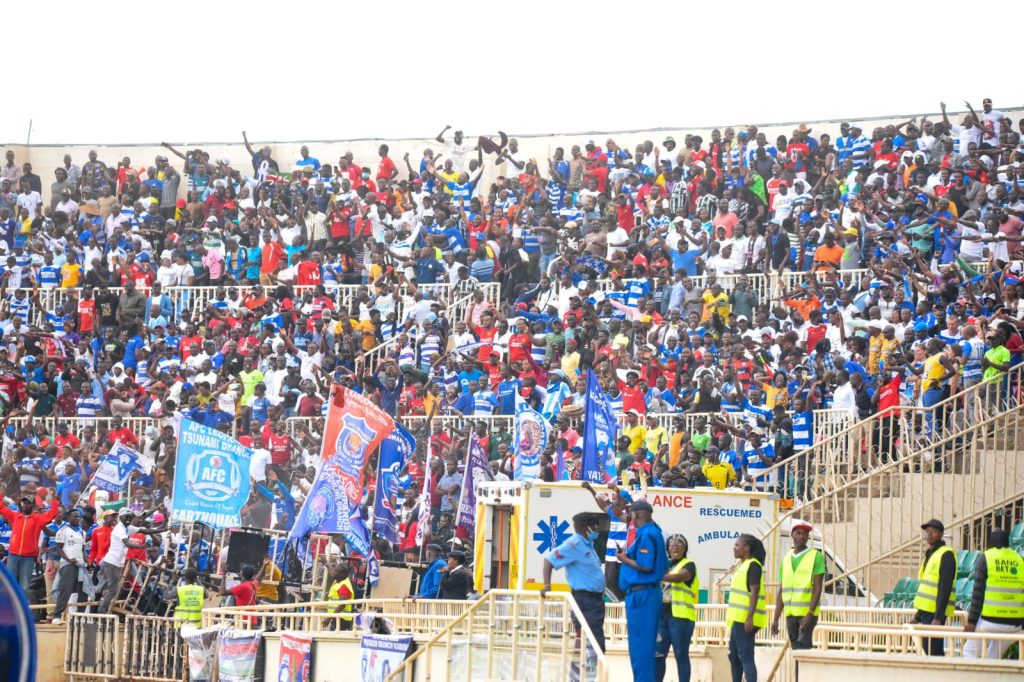Sports sponsorships are among the most effective strategies for enhancing brand visibility and building lasting loyalty. By associating with sports teams, athletes, or events, companies can connect with diverse audiences on an emotional level, fostering trust and recognition. In Africa, where sports hold deep cultural significance, strategic sponsorships offer unique opportunities to create meaningful impact while driving business growth.
This article explores how corporate partners can leverage sports sponsorships, showcases successful campaigns in Africa, and offers tips for aligning sponsorships with brand values.
Enhancing Brand Visibility and Loyalty
Sports sponsorships allow brands to embed themselves into the daily lives of their target audiences. Through prominent logo placements on jerseys, stadium banners, or event marketing materials, brands achieve high visibility. Additionally, leveraging the influence of athletes or teams as brand ambassadors further deepens audience connections.
In Kenya, for example, Safaricom’s sponsorship of the Chapa Dimba na Safaricom football tournament showcased how aligning with grassroots sports not only elevated the company’s visibility but also positioned it as a champion of youth empowerment. This blend of branding and community impact resonates deeply, fostering long-term customer loyalty.
Key benefits of sponsorships include:
- Increased exposure through media coverage and digital platforms.
- Strengthened emotional connections with audiences who are passionate about the sponsored sport.
- Differentiation from competitors through unique, memorable campaigns.
Case Studies: Successful Sponsorship Campaigns in Africa
SportPesa and the Kenyan Premier League (KPL)
SportPesa’s sponsorship of the KPL revolutionized Kenyan football. By funding league operations and offering financial support to clubs, the company strengthened its image as a patron of local sports. This partnership also allowed SportPesa to achieve extensive visibility, both locally and internationally, as the league’s popularity grew.
MTN and African Football
MTN has long been a major sponsor of African football, including the Africa Cup of Nations (AFCON). Its sponsorship strategy incorporates digital campaigns, competitions, and branded merchandise, ensuring its presence is felt across multiple touchpoints. MTN’s alignment with African football reinforced its brand as a supporter of unity and culture across the continent.
Coca-Cola and Global Sports
Coca-Cola’s sponsorship of major sporting events like the FIFA World Cup extends to African audiences, where football has a massive following. By integrating its brand into football’s cultural fabric, Coca-Cola remains top-of-mind among fans, demonstrating the global reach of well-executed sports sponsorships.
Aligning Sponsorships with Brand Values and Objectives
A sponsorship’s success largely depends on how well it aligns with the brand’s core values and strategic objectives. Misaligned sponsorships can dilute a brand’s image or fail to connect with its audience.
Tips for Alignment
- Know Your Audience: Choose sports or events that resonate with your target market. For instance, a company targeting youth may find greater value in sponsoring grassroots football leagues than elite professional sports.
- Define Clear Objectives: Identify whether your goal is brand awareness, community engagement, or sales growth. Tailor your sponsorship strategy accordingly.
- Engage Beyond Logos: Use digital platforms, contests, or experiential activations to create deeper connections with fans. For example, allowing fans to vote on match MVPs or win branded merchandise can amplify engagement.
- Focus on Authenticity: Audiences are drawn to genuine partnerships. Supporting causes like gender equity in sports or funding infrastructure development showcases your brand as socially responsible.
The Role of Digital Media
In the digital age, sponsorship campaigns extend far beyond physical events. Social media platforms, streaming services, and fan engagement apps are essential tools for maximizing sponsorship impact. By creating shareable content, leveraging influencer marketing, and live-tweeting games or events, brands can amplify their visibility and reach exponentially.
Final Thoughts
Sports sponsorships are a powerful vehicle for building brand equity, provided they are strategically planned and authentically executed. From Safaricom’s grassroots football initiatives to MTN’s continental football campaigns, successful sponsorships demonstrate the importance of aligning partnerships with brand values and audience preferences.
As Africa’s sports ecosystem continues to grow, corporate partners have an unparalleled opportunity to connect with audiences and leave lasting impressions. By investing in sponsorships that resonate emotionally and align with business objectives, brands can strengthen their presence, inspire loyalty, and contribute to the vibrant sports culture on the continent.

